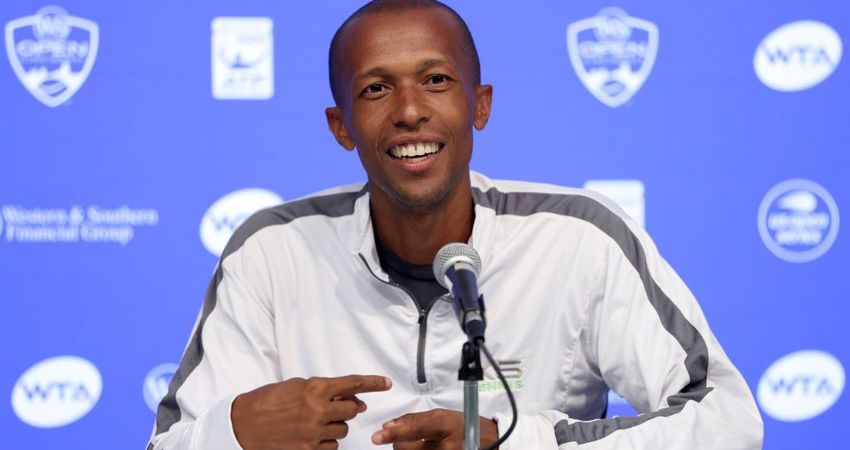Murray on Stephens: 'She is very honest and realistic'

CINCINNATI, OH, USA - When Sloane Stephens shed a tear after losing the Montréal final to World No.1 Simona Halep in three brilliant, gruelling sets, it was a more emotional response than the world has come to expect of the American.
After all, Stephens is renowned for taking both victories and losses with equanimity. Following her first-round Wimbledon defeat at the hands of Donna Vekic, the US Open champion tweeted: "Trials make you stronger. As an athlete you have to recognize when to push ahead and not to dwell. I won’t be dwelling."
So although Stephens' coach Kamau Murray admitted that he "wanted to cry for her" after the 7-6(6), 3-6, 6-4 Montréal loss, he was also happy to see her reaction. "Sloane is never one that overreacts to a loss, so I think that the reaction you saw was pretty positive from a coaching standpoint, because it showed probably more disappointment than usual," he told the press ahead of his charge's campaign at the Western & Southern Open, Cincinnati.
Nonetheless, Stephens' relaxed reactions to her results are who she is - and to Murray, they are fundamental to keeping her on an even keel. "One of the reasons why Sloane has been so stable is because she is very honest and realistic," he said. "If we weren't ready to play, for whatever reason, if we lose, we're not going to cry. We're not going to fire our coach.
"I think your reaction to a loss really should depend on what happened prior to the loss. So sometimes when there is not a lot of drama or overreaction to a loss, it's because we know there were some things we could have done differently prior to [it]."
Stephens' honesty makes Murray's job a lot easier, he said. "Sloane doesn't allow you to guess," he laughed. "She'll say, 'Stop doing that. Tie your shoes up.' Three years ago we were on the court in Australia, and she was, like, 'Tie your shoes up.' I was like, OK, she doesn't like it when my shoes are untied."
It's a trait that's valuable beyond practice attire, though. "I think when players don't speak up, it makes your job a lot harder to see what's set them off," said Murray. "They don't tell you until after the match, 'You know, I was really upset before the match.' Well, I wish you would have said something, because I could have fixed that and help you win.
I think Sloane is very easy in that regard because she's very honest. I want to eat this. Stop doing that. Can you get me this? I don't like this. I think this. He's serving this way. Tell me to serve this way. I think it makes it pretty easy. The challenges? I don't know. It's a tough one. I would say the challenge with Sloane is very literal, so you've got to be very careful with your words."
Like his charge, Murray is not one for overreacting to losses, either, preferring honest assessments of why they happened over treating them like the end of the world. His own equanimity complements Stephens' personality, he says - but it also helps their relationship.
"I think she's more comfortable being vulnerable... because she's not so worried about, I wonder what he's going to say, or I wonder what mom is going to say," said Murray. "[After losses], it's almost dead silence until she says the first word. Then I'll say something."
Murray, the founder of the XS Tennis and Education Foundation focusing on underserved youth in his home city of Chicago, has a wealth of experience in coaching kids, and is attuned to the emotional situations that make them more anxious: "You worry about the long car ride home after you lose - kids don't forget that," he said.
But Stephens has also learned a lot from her coach's other project. Murray admits that "it has been a process getting her to... go all in and risk being disappointed if you don't get the result" - but spending time around underprivileged children has been a step forward on this front. "She spends a lot of time with kids now, both in LA and Chicago, who sort of look up to her, who don't have as much," said Murray. "So it's OK to be vulnerable. No matter how vulnerable you are, you are nowhere near as vulnerable as that person over there."







